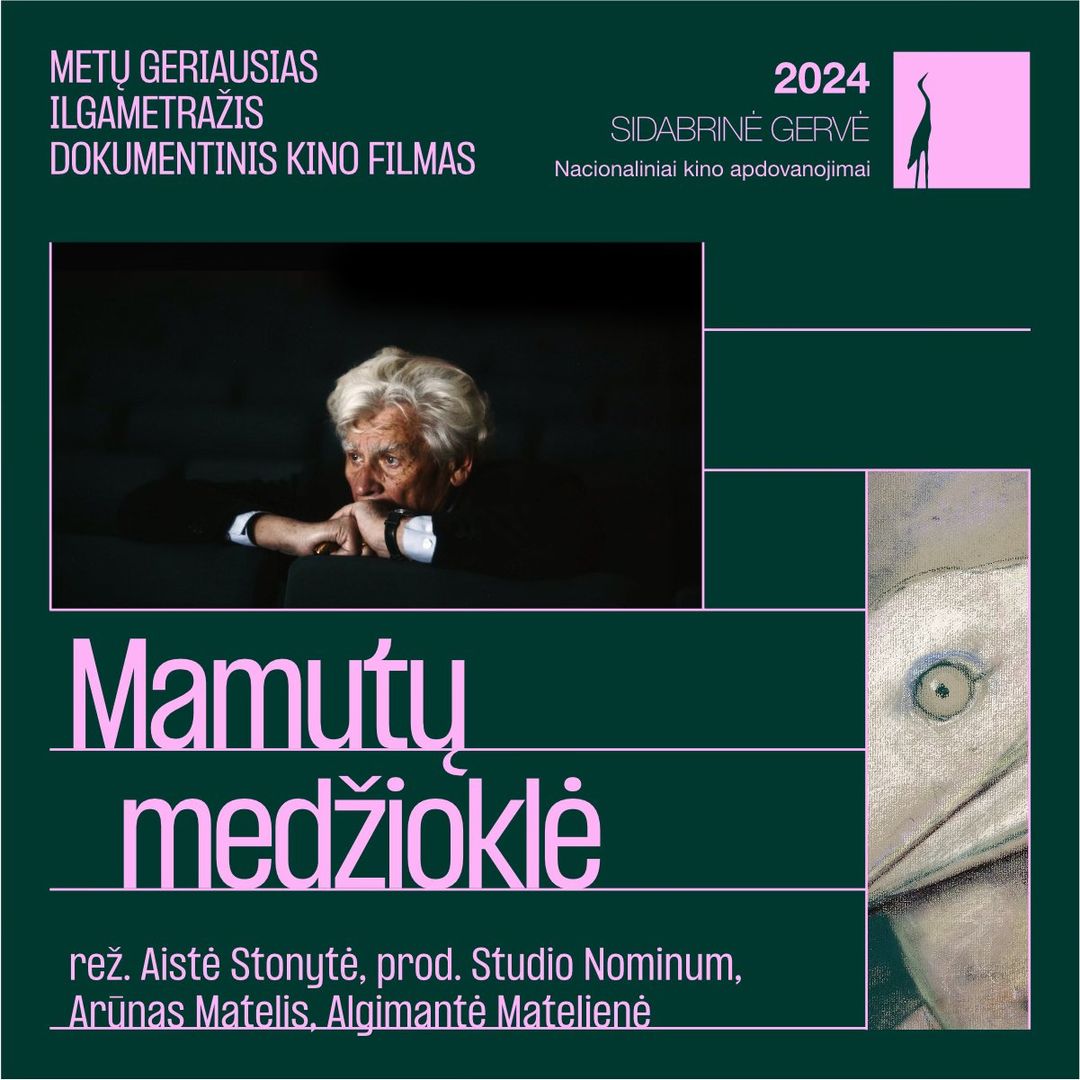


Aistė Stonytė: The Mammoth Hunt Wins Silver Crane in Lithuania

All right, let’s have the synopsis (Scanorama Festival Kaunas 2023) first: ““The Mammoth Hunt” is a story about a film reel that for many years has been thought to be lost. On the reel, under conspiracy conditions, an abolished anti-Soviet theatre performance had been documented nearly 50 years ago – a play that served as a cross-section of the period revealing the universal subjects of courage, conformation, loyalty and betrayal.” Directed by Jonas Jurašas (1936), who left Soviet Lithuania in 1974 with his wife Ausra and came back, when the country achieved its independence. Jurašas is the main protagonist in the film, his cv from his time as “senior director” of the Kaunas Drama Theatre is impressive.
I have seen the film twice. As I normally do, when I find something that is of great interest content-wise and as a Film. On top of that, a personal motivation: the film deals with the world of theatre – my father was an actor, Aistė Stonytė’s father is an actor and I sense immediately that the film has a loving atmosphere and cares about its protagonists.
I loved to be there in the theatre world with all these old charismatic people digging into a past that was both enjoyable and not so pleasant. They did something together, “The Mammoth Hunt” was a great audience success, and when banned by Moscow, the play was filmed secretly but where is the film…
There are many strong protagonists, the writer/critic, Audronė Girdzijauskaitė, who was banned for her writing, the sculptor, Marija Vildžiūnienė, who was hiding Jonas and his wife Ausra, the latter strong as well, she was described as “furia” in the KGB archive. The 96 year old actor Antanas Tarasevicius, who remembers that the filming (in 1970!) took place; he was also secretary of the party, but that was just a personal security matter for him, he says… And not to forget the cameraman Donatas Pečiūra, who passed away last year, an old man who climbs the stairs to his attic to look for the film as he shot on 16mm, on material provided for the shooting by the Amateur Film Society, whose chair at that time was Rimgaudas Eilunavicius, who as the others are interviewed by Stonyté. No one seems to know, where the film is but luckily the sound tapes are there and play an important role for the viewer to imagine, often together with photos taken, what a controversial play it must have been. Well told, good cinematography by Kristina Sereikaite, two genres that go well together – the investigation and a psychological drama. Great archive! And great music from the film!
Many layers there are. It’s also a film about remembrance. The cameraman of the play Donatas Pečiūra goes to the attic and is actually more interested in showing some photos from way back than searching for the lost film. Look and he shows a photo of a cat! Marija Vildžiūnienė, a lovely protagonist, shot a lot of b/w material, thus she is able to remember those days, where Jonas Jurašas and his wife were living at her place; there is a freshness in this material, a feeling of freedom.
Should he have stayed? Audronė Girdzijauskaitė, the critic and author, reflects on this. He could have been a legend but he left and came back as a hero… who could no longer connect to the country. Masterly conveyed by Stonyté, who follows the theatre director with the beautiful white hair walking around, visiting the theatre AND sitting at the beach, alone like the last scene with Dirk Bogarde in Visconti’s “Death in Venice”. A heron walks in the foreground, magic!
This building of the film is so intelligent. I was until a certain point sure that I would be given an answer to the missing film but the shift to have the focus solely on the aging Jonas Jurašas and his fate being away from his country, coming back as a stranger is very moving. Thank you for not refraining from pathos, for filming his embrace of THEATRE.
Lithuania, 2023, 94 mins.